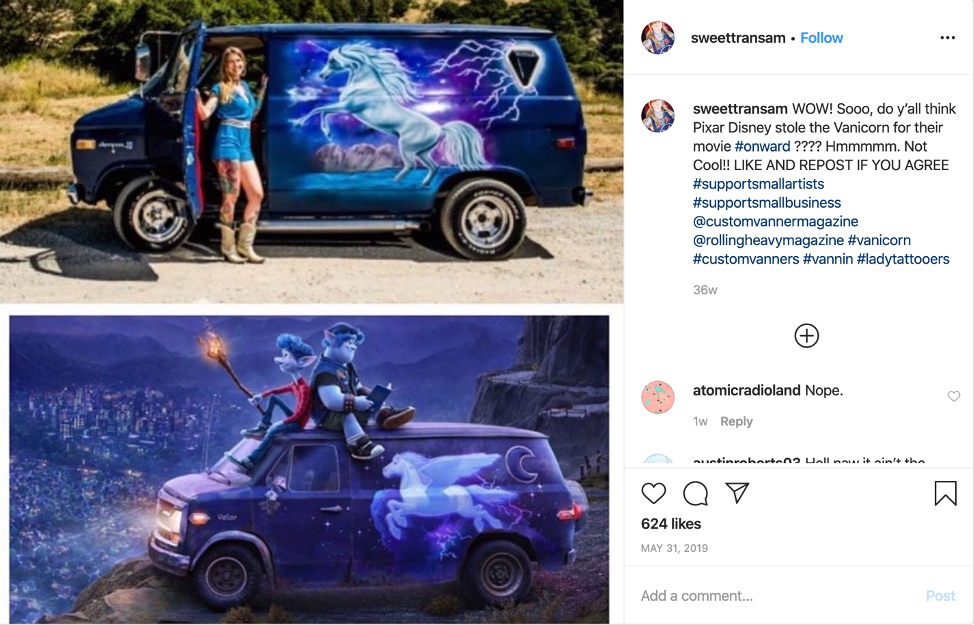A San Francisco tattoo artist named Sweet Cicely Daniher is suing Pixar after renting out her van to Pixar for unlawfully infringing her copyright in her creation, distribution, production, promotion, screening, publication, execution of licensing deals for and/or pending sale of movie tickets for the upcoming motion picture “Onward.”
Growing up, Sweet felt a strong connection to unicorns. Several years ago Sweet created an Instagram page full of ordinary things that look like unicorns. This passion for unicorns has been reflected through her artistic work and career.
In January 2014 Sweet bought a “tremendously cool, dark blue and purple ’72 Chevy van”, known as the “Vanicorn.” For years the artist wished to paint a unicorn mural on the side of her beloved van, but her then-husband refused to allow her to do so. After the divorce, Sweet painted her unicorn mural as a redemptive and validating act. San Francisco residents and tourists have enjoyed spotting the Vanicorn around the city. It gained so much attention that even Pixar took notice! A production manager messaged Sweet inquiring about renting her van as a “show piece” and “visual prop” for a social event.
In May 2019 Sweet learned about Pixar’s, animated motion picture, “Onward.” In the movie, there is a van from the movie named Guinevere, that perfectly depicts the Vanicorn. Sweet claims that this Guinevere van in “Onward” is a doppelganger of Sweet’s Vanicorn, down to the same year, make, model, color scheme, and mural of a unicorn.
Sweet’s lawyers argue the rental contract explicitly prohibits photos, videos or visual representations of the Vanicorn for purposes outside the scope of the event. The complaint states that Disney used “wickedly misleading pretenses.” Sweet is suing for copyright infringement, violation of the Digital Millennium Copyright Act, violation of the Visual Artists Rights Act and violation of the California Artists Protection Act. Sweet seeks damages and an injunction barring Pixar from distributing, marketing or selling infringing advertisements, merchandise and film.
Copyright laws are designed to protect an author or creator’s original and creative expressions. Infringement arises when the copyrighted work is reproduced, performed, distributed, displayed, or made into a derivative work without the copyright owner’s permission.
Article by Sharrissa Stratton

